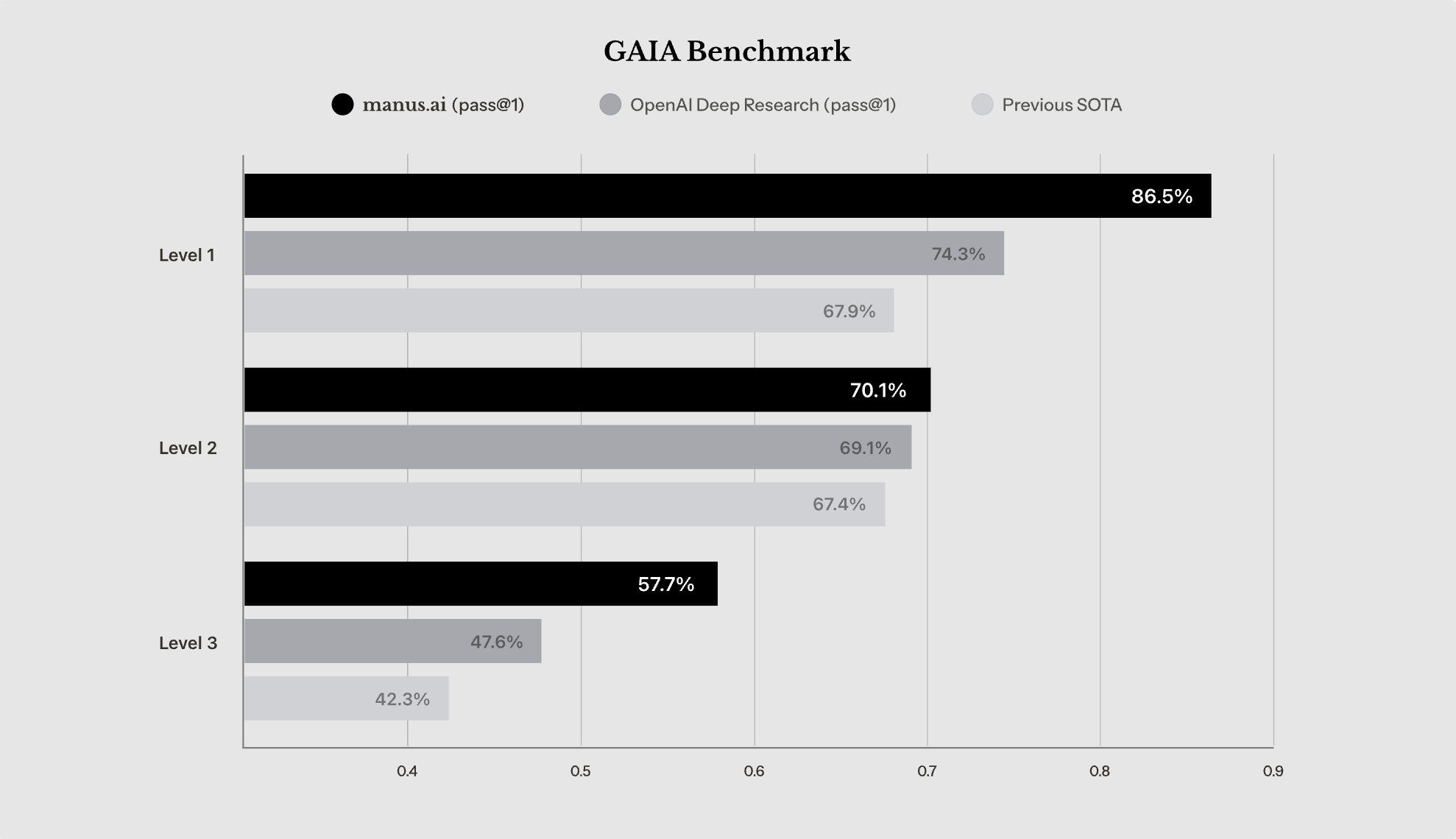Manus: AI Agent Startup Raises US$75M, Expands Globally Amid Performance & Privacy Hurdles

Image Credit: Joakim Honkasalo | Splash
Manus AI, developed by Butterfly Effect—a startup registered in the Cayman Islands with operations primarily in China and Singapore—has emerged as a significant player in the evolving landscape of autonomous AI agents.
Technological Capabilities
Manus AI is designed as an autonomous multi-agent platform capable of independently handling complex workflows. The system delegates specialized tasks to sub-agents, covering functions such as financial analysis, travel planning, recruitment, and website creation. For example, Manus can review resumes or generate a complete website with minimal user input.

Image Source: Manus
The platform leverages models from Anthropic (Claude Sonnet), Alibaba (Qwen), and various open-source tools, including browser automation. Independent testing, such as the GAIA benchmark, suggests that Manus can outperform comparable tools—including OpenAI’s Deep Research—in certain specialized tasks. This broad interoperability underpins Manus’s versatility, though it relies heavily on integrating existing models rather than developing entirely proprietary AI.
Funding and Investment
In April 2025, Manus secured US$75 million in a funding round led by U.S.-based Benchmark Capital, with additional participation from Tencent, ZhenFund, and HongShan Capital. This raised the company’s valuation to approximately US$500 million. However, this funding also attracted regulatory scrutiny: the U.S. Treasury Department is currently reviewing Benchmark’s investment due to Manus’s significant operations in China, reflecting wider U.S.-China tensions around AI investments.
Public Access and Monetization
Manus AI moved from an invite-only system to public registration in March 2025, launching a mobile app and premium subscription model. The standard plan starts at $39 USD per month, providing 3,900 credits and the ability to run two tasks simultaneously. New users are offered 1,000 free credits for trial purposes.
Notably, Manus’s approach to monetization is uncommon in China, where free access models are typical for AI services. Some users have reported that credits can be depleted rapidly—Forbes highlighted instances of 500 credits being used up within just two complex queries. Meanwhile, the China-facing version of Manus, branded as Monica, has obtained regulatory approval for generative AI use, supporting the company’s domestic expansion.
Performance and User Feedback
Manus AI has demonstrated strengths in producing in-depth, transparent reports—such as detailed company analyses—attracting attention for its transparency and scope. Benchmarks indicate Manus can outperform ChatGPT-based Deep Research in game development and similar tasks, with typical costs around US$2 per task.
However, some users and technology reviewers have reported reliability issues, including system crashes, processing delays, and an overall “unfinished” user experience. TechRadar and other outlets have noted that, while innovative, Manus currently faces challenges in stability and suitability for high-stakes or business-critical applications. Business leaders and some analysts have questioned its readiness for enterprise deployment.
Privacy Considerations
Like many cloud-based AI platforms, Manus AI processes large volumes of online data, which has raised privacy and data handling concerns. Wired and other sources have reported that autonomous agents such as Manus often use publicly available data without explicit user consent, prompting questions about user privacy, data residency, and compliance with international standards. Specific details of Manus’s privacy and data retention policies remain limited in public documentation, highlighting the need for clearer safeguards as adoption grows.
Competitive Landscape and Government Support
In March 2025, Beijing’s government highlighted Manus AI in state media, reflecting official support for its role in China’s AI strategy. This aligns with broader efforts to boost domestic champions such as DeepSeek in the international AI market. Within China, Manus faces competition from rivals like Zhipu’s free AutoGLM agent, intensifying the race among domestic AI providers. Globally, Manus’s international expansion and funding have begun to challenge U.S. AI dominance, but ongoing reliability issues and regulatory reviews could slow its momentum.
Source: Yahoo! News, TechCrunch, PYMNTS, Outpost
We are your source for AI news and insights. Join us as we explore the future of AI and its impact on humanity, offering thoughtful analysis and fostering community dialogue.








































